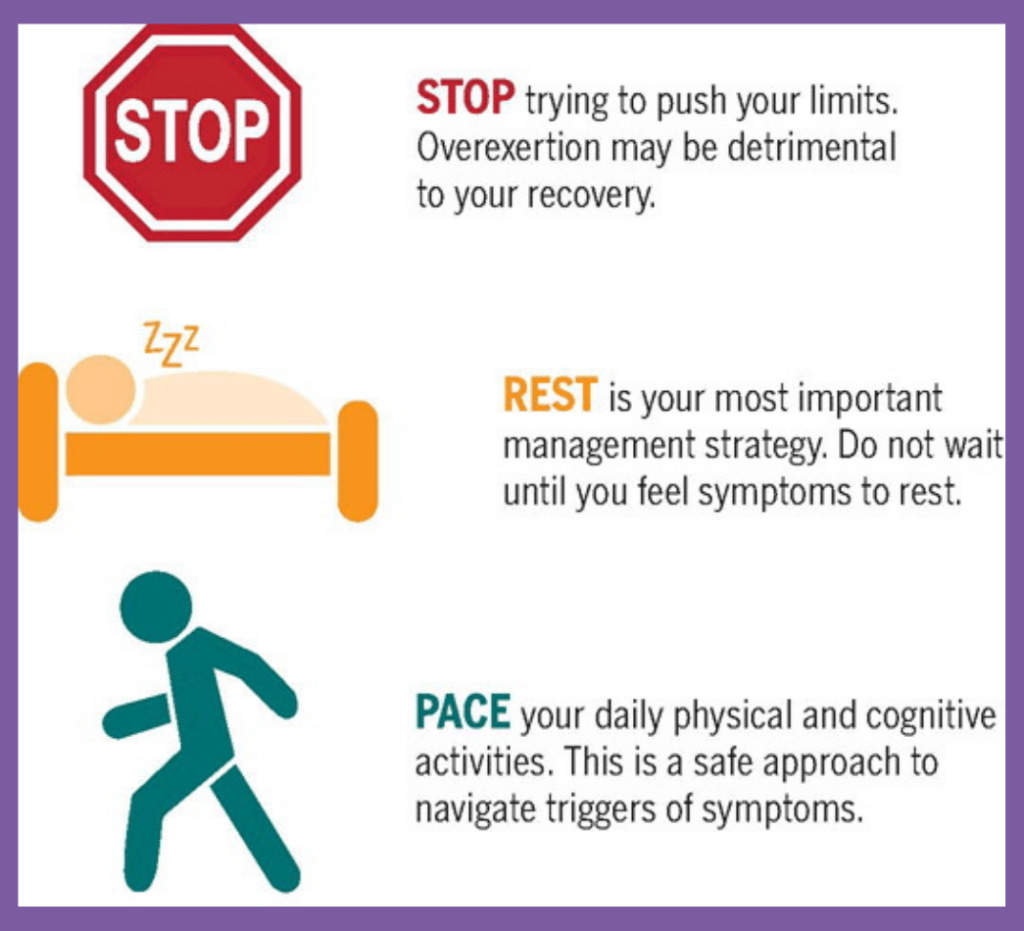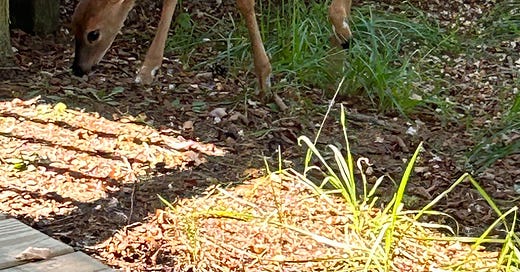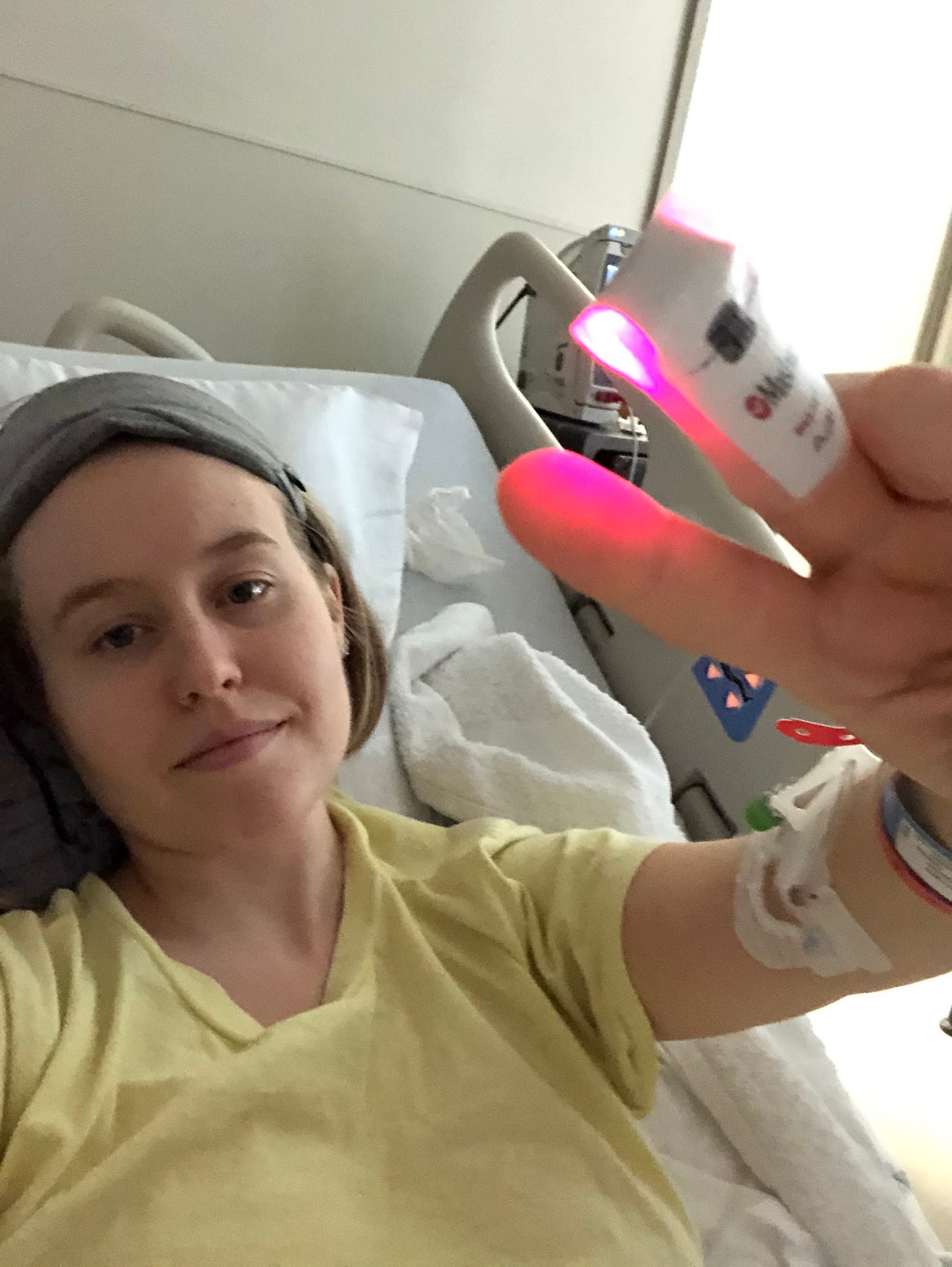Five years later, reckoning with denial
In the face of collective traumas, is there a "right" way to respond?
Over the past week, I have been marking my five year “coronaversary”—a term many with Long COVID use to note the day, week, or period of time in which we first became sick with the virus that disabled us. For me, there are days that stand out (exposure on March 10, symptom onset on March 13, hospitalization on March 17), but as soon as we hit mid-March, the entire season begins to take on a familiar feeling. The days are longer, St. Patrick’s Day decorations go up, and friends note trauma anniversaries while the world seems to go on as usual.
This juxtaposition of our reckoning and remembering with society’s increasing desire to forgive and forget is always jarring, and becomes more so every year that passes. The gulf between these groups just seems to grow larger. Perhaps it is because compounding traumas—from climate disasters, to new viruses, to attacks on immigrants and trans people—demand constant and new attention, leaving little time for much else. Perhaps it’s because so many pandemic lessons have been forgotten; most people still haven’t confronted how ableism encourages us to turn away from disability, instead of creating systems that can help us all survive and thrive.
Another reason this gulf may exist is because there is no official day of remembrance, national monument, or memorial for the lives lost to and impacted by this virus. Kristin Urquiza, co-founder and executive director of Marked by COVID, has been working to change that since her father’s death from Covid-19 on June 30, 2020. Almost five years later, Urquiza describes Marked by COVID as a “massive project to memorialized the more than one million people that we’ve lost to COVID, to remind folks that COVID [and] Long COVID still exists, and to stop revisionist history.”
In the absence of government-recognized days to commemorate this continuing trauma, Marked by COVID and other grassroots groups have organized their own ways of remembering.
Marked by COVID has worked with senators to try to to make the first Monday in March a National Covid-19 Memorial Day, and organizes actions every year.
The group has also created a partially digital memorial, inspired by the AIDS Quilt, where you can submit photos and stories of loved ones lost to Covid-19.
People with Long COVID have begun recognizing March 15 as International Long COVID Awareness Day, organizing social media campaigns and in-person actions.
Every May, Long COVID Justice organizes an annual memorial in New York City honoring losses from Long COVID and associated diseases, called “Naming the Lost.”
Urquiza says “creating public memory” is crucial for future generations, but it’s also important for healing today. “I often wonder how my experience would have been better had the 1918 flu been more than one sentence in my history book,” she told me.
How we cope
When Urquiza’s father passed away, it was a matter of hours before she began organizing Marked by COVID. She talked to reporters, pitched stories, and connected with other people who had lost loved ones. “Being able to share my story…has been incredibly healing,” she said. “More people should be able to have that feeling, to feel as if their loved one has been honored and recognized as a casualty of this horrific public health crisis.”
In the days and weeks after her father’s death, Urquiza also started looking for Covid-19 grief groups to join. She came across one that accepted her, but the community terms asked that members refrain from expressing anger. That was a dealbreaker. “I am very angry,” Urquiza said. And, tapping into that anger has been an important way to process, connect with others, and grieve.
I relate to Urquiza. I, too, responded to the trauma of the first recognized “wave” of the Covid-19 pandemic by getting good and mad—and organizing my fellow angry long-haulers to fight for recognition, support, and care. Anger bonded me to a group of people who had been abandoned by the government, and propelled us forward in often impossible-feeling work. Ironically, I think tapping into this rage also sometimes allowed me to more easily deny other difficult emotions: sadness, fear, and longing, for instance.
According to Sebastian Katten, LCSW, anger can be a “unifying motivator,” but it is also often a “shielding” emotion—protecting us from other painful feelings. In this way, Katten says anger actually shares some qualities with denial. “Both these feelings are a natural defenses,” he explains. “If we’re inundated with vulnerable feelings, that can be too much at once. Our bodies are designed to help us process things gradually.” In some cases, Katten says, a little bit of denial is necessary to function.
Polarized responses
Evacuation fatigue. Pandemic fatigue.
Experts cite these psychological phenomena as reasons people don’t heed climate disaster and public health warnings. Those of us who’ve experienced direct impacts often scoff in response. You think it’s tiring to pack a go-bag, or wear a mask? Try losing your home to a fire or flood, or experiencing daily fatigue of Long COVID.
In the face of mass denial, it is difficult not to feel a surge of anger. It’s also difficult not to wonder if these two responses feed each other: The less others listen, the louder we yell. The louder we yell, the more some people tune out. In other words, collective traumas sometimes birth polarized responses.
I think this dynamic plays out on smaller scales too, in our interpersonal relationship dynamics and communities—especially as we grapple with mounting collective health concerns. There’s the parent who’s overprotective, and the one who gets to be easygoing in response. The partner who’s always late, and the one who reacts by becoming hyper-vigilant about time.
If one person rings an alarm consistently enough, they may take on the role of concerned citizen at best, and anxious alarmist at worst. Their warnings become a constant refrain—noisy, and perhaps annoying—allowing the other party to relax into the role of dismisser. After all, the alarmist will always ring the alarm, so there’s no need for the dismisser to remain vigilant. Of course, in doing so, the dismisser fuels the alarmist, contributing to a potentially endless cycle in which both reactions heighten. I’ve seen several romantic relationships be undone by this dynamic, although I’m sure some are sustained by it.
Threats like Covid-19 and climate change exacerbate this age-old dance. Take Lyme disease, for example. In Fire Island—a small barrier island off the coast of Long Island, where I spent part of my childhood—deer that carry Lyme often outnumber people. Legend says they crossed the Great South Bay one year when it froze, and never returned, having found a paradise free from predators and cars.
Even before Lyme was identified in the region, locals treated them as pests, shooing them away from garbages and even allegedly shooting at them with bows and arrows. Once Lyme was identified, the frenzied hunt took on a new element. A New York Times article from the 1980s chronicles a heated debate about how best to kill them, and whether the creatures pose a greater threat than beach erosion.
Fire Island is one of the first places I witnessed a cultural divide around by public health practices. My parents, and many of their New York Times-reading peers, forbade us kids from playing in the grassy swamps and dunes that line the island’s boardwalks. We were regularly stripped and checked for tics. The deer, whose ears and heads were often riddled with bumpy sores, symbolized a rising threat.
Some children on the island, however, played freely with these creatures, scampering through their grassy hideouts, reaching curious hands out to touch a back leg or head before the animals could dart away. These children’s parents would roll their eyes if you expressed concern, or voiced your own parents’ rules—as if to say, stop this ridiculous worrying.
When I began attending school on Fire Island with the other “year-rounders,” I found that this scoffing, blasé attitude toward tics was pervasive. It was curious, considering that by living there year-round, we were exposing ourselves most frequently to the island’s elements and were arguably at greater risk, compared to the “summer people” who dropped in only for a weekend or August rental. Still, I didn’t see many of the year-rounders tug their socks over the bottoms of their pants when forced to retrieve a lost baseball in the weeds, as my own parents would.
I was nearing the end of childhood during this time, and the juxtaposition of approaches perplexed me, highlighting the invisible nature of what had previously felt like a very solid threat. I didn’t know this risk assessment tug-of-war would become a defining element of my life as an adult. I can’t (and wouldn’t want to) try to psychoanalyze the deer-huggers of Fire Island, but something Katten explained to me stands out here: trauma can sometimes undermine a person’s capacity to access risk assessment, or determine danger.
The relatively gradual onset of Lyme in Fire Island isn’t any kind of dead ringer for the collective trauma of Covid-19, Los Angeles’ recent fires, or the many hurricanes that have wreaked havoc on that island (and will in the years to come). But, it did mark a shift in daily life that was required wrapping your head around a new normal, if you will—one that, if you were reading certain newspapers, heralded larger changes ahead.
Fighting denialism & fascism
Sometimes when we see danger, we hide or freeze. Other times, we get mad. One of these responses tends to be far more acceptable. While it’s often considered “polite” to brush topics like climate change or disability under the rug, anger isn’t an emotion our society is always comfortable with—especially when it’s expressed by women, people of color, LGBTQ+ folks, disabled people, and other marginalized populations. And yet, if we want to truly understand our collective traumas, histories, and how we should respond, we must listen to these impacted communities—even, and especially when they’re angry.
Before Urquiza began advocating for a national Covid-19 memorial, she worked in the climate justice space, fighting climate denialism to achieve necessary policy change. The most successful tactic? Amplifying voices of those most impacted. “It’s more effective if we have folks…sharing stories of how their forest has changed in the last 20 years, or how their drinking water has changed,” she says, noting that widespread climate denialism started to decline, after advocates began centering people directly in harm’s way.
When Urquiza began organizing people impacted by the Covid-19 pandemic, she noticed an “eerie” similarity:
“Some of the COVID spaces would gravitate toward purely academic or medical perspectives and leave out the voices of…disabled folks, medically vulnerable people, Black and Brown voices, [or] people experiencing Long COVID. It’s just mind-boggling to me because we…could all do so much better if we were to make sure that these folks have what they need to stay safe.”
Urquiza believes the erasure of these voices fuels denialism. I’d argue this erasure also fuels fascism. Once again, I find myself recommending here that we engage with the difficult topics.
Perhaps this is because I also understand that those most impacted have less choice about whether or not to engage. I don’t have the privilege to forget about the Covid-19 pandemic, for example, because the virus’ symptoms live on in my body every single day—reminding me that another Covid-19 infection could further disabled me. My friends who are not U.S. citizens don’t have the privilege of forgetting about increasing ICE raids, and my friends with family in Palestine and Lebanon can’t simply tune out the news that the Israeli government unilaterally ended the ceasefire this week. But, it’s also a bit more complicated that this…
Katten, who specializes in trauma and works with a lot of trans clients, points out that when it comes to engaging or disengaging, our capacities may differ based on how resourced or directly impacted we are. “Not everyone has the ability to go to therapy,” he points out.
“We went straight from the fires into Trump's inauguration, and all of the executive orders that were meant to to stun and overwhelm people…I see a lot of paralysis with how much is going on. That can send someone right back into denial.”
Earlier this week, I was fortunate enough to catch a screening of the 1984 feminist film, Leila and the Wolves—which depicts stories of women in Lebanon and Palestine from the 1920s through the 1970s. After, renown filmmaker Heiny Srour spoke about her experience as an Arab, Jewish woman shining a light on women’s roles in anti-Zionist and anti-imperialist movements in the region. When asked for advice on facing fascism, Srour responded: “Be fearless…ignore the fear they have put into your heart.”
My work covering public health and climate has often made me to view denial and anger as diametrically opposed—they deny, we fight back. And, while this is true, Srour’s words helped me crystalize a question that had been gnawing at me through my conversations with Urquiza and Katten. To keep going, tend to your inner fire, and get out of bed to fight another day, what other emotions or needs must you ignore?
This year marked five years of living with Long COVID for me, and it was also the first year I didn’t spend my “coronaversary” organizing or writing about the Long COVID community (apart from this newsletter). In fact, I used the structure of Shabbat to spend about 24 hours logging off my phone, nourishing myself with good food, bathing, and spending time in nature. It was one part distraction (denial), one part commemoration (fight back).
I don’t know how much is too much for my body or yours. Lately, every day feels a little different, and almost every day is peppered with a conversation about this very question. For what it’s worth, I think the fact that we all seem to be checking in so consistently on these topics (am I doing enough? is this where I should put my resources?) means we care very deeply about sustaining our engagement for the long-haul (if you’ll excuse the word play).

When I asked Urquiza what she would say to someone feeling the crush of despair and the desire to retreat into denial, she talked about finding like-minded people, knowing your own boundaries, and breaking down goals into bite-sized pieces. But, it was this advice that I’ve been carrying with me like a warm hand in mine, ever since: “You have your entire life to do something…it is okay to not be okay, and it's also okay to not be okay and have moments of joy.”
Until next time, stay safe out there.
PS—if you’re interested in learning more about resisting COVID denialism, the Peoples Hub offers a Community of Practice on the topic here.
safety pin publishes approximately two times per month, sharing written and audio work on the intersections of climate change, chronic illness, and disability justice. If you value this work, please consider liking our posts, becoming a subscriber, and/or supporting by becoming a paid subscriber. Unfortunately this app doesn’t allow sliding scale subscriptions, so if you’d like to contribute at a lower fee than $5 per month or $55 per year, you can make a one time donation via venmo (@ fionalowenstein), or set up recurring monthly donations at Zelle (fionalowenstein@gmail.com). Funds go toward compensating our podcast producer, covering operational costs like Zoom and paid transcription services, and will hopefully allow me to eventually pay myself fairly for this work and bring in other talented trans and/or disabled collaborators.





